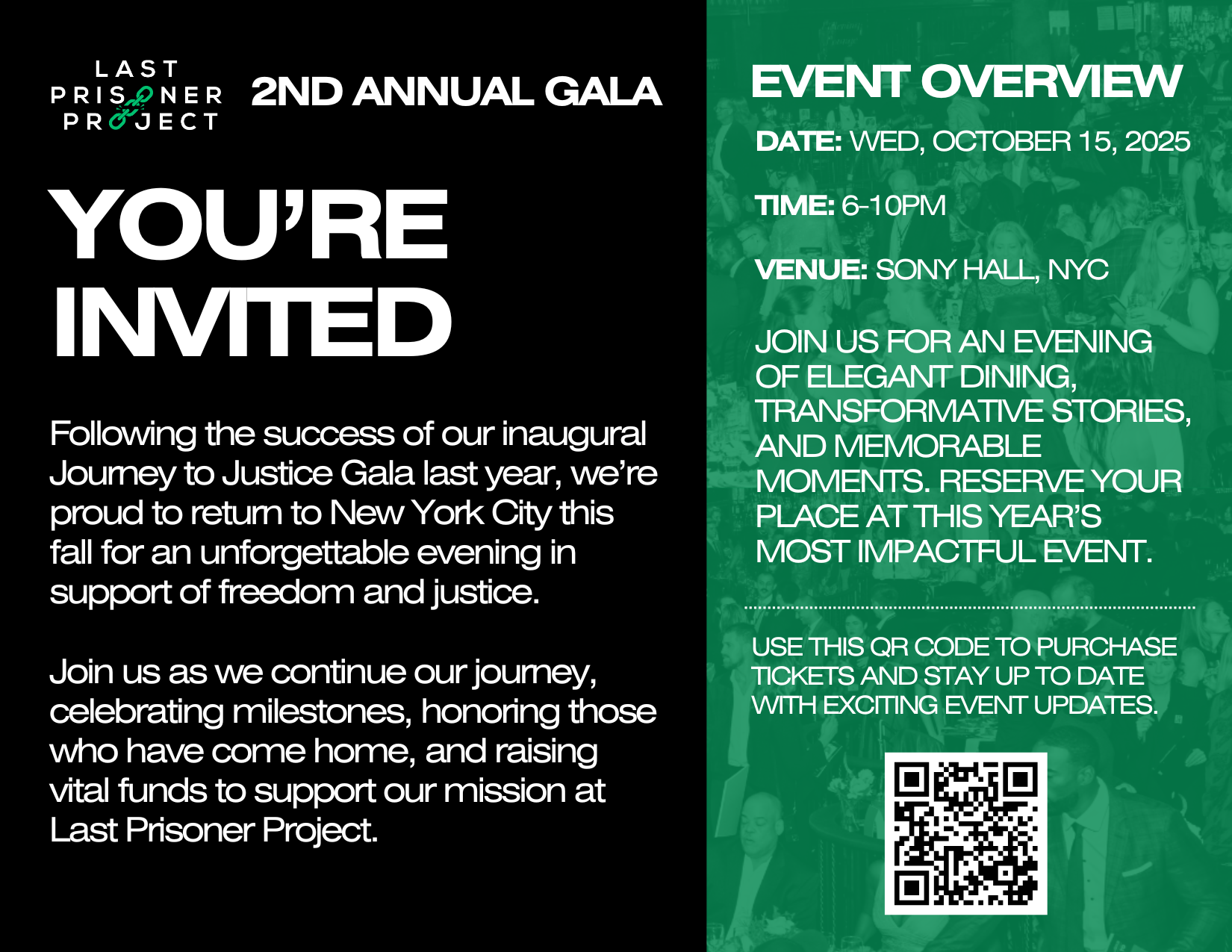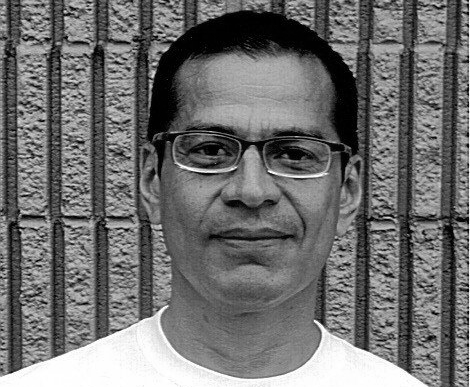Last Prisoner Project’s Journey to Justice Gala to Honor Impacted Families and Push the Fight for Freedom Forward
Wednesday, October 15 at Sony Hall in New York City
Notable Guests Include Carmelo Anthony, Calvin “Megatron” Johnson, Dr. Wendy & Eddie Osefo, Fab 5 Freddy, Keith Shocklee and Studdah Man of Public Enemy, and Guy Torry with a Performance by Joy Oladokun
PURCHASE TICKETS & MORE INFORMATION

NEW YORK, NY – June 12, 2025 – The Last Prisoner Project (LPP) will host its second annual Journey to Justice Gala on Wednesday, October 15 at Sony Hall in New York City, bringing together artists, advocates, and supporters to celebrate progress in the fight to end the War on Cannabis.
This year’s gala will honor the resilience of those directly impacted by cannabis incarceration, highlighting their stories through powerful performances and moving tributes. Presenting guests will include
NBA All-Star Carmelo Anthony, who recently co-founded
Grand National with
Jesce Horton and
Brandon 'Beedy' Pierce, an agency that supports LPP.
NFL Hall of Famer Calvin Johnson,
Eddie & Wendy Essefo of the
Real Housewives franchise, along with comedian and actor
Guy Torry, who will serve as the evening’s MC, and
Fab 5 Freddy
will also be in attendance. Guests will also be treated to a musical performance by
Joy Oladokun, and a DJ set by
Keith Shocklee, founding member of
Public Enemy.
The event will also honor LPP constituents who have returned home and are using their freedom to advocate for others. Former constituents like
Mario Ramos who served 13 months for cannabis before opening his own dispensary, Conbud, in New York City, and
Deshaun Durham who was granted clemency by
Kansas Governor Laura Kelly at the end of last year will receive awards for their activism post-release.
“As the cannabis industry continues to thrive, too many have been left behind serving time for acts that are no longer crimes. The Journey to Justice Gala is not just a celebration of the over 300+ years of imprisonment we have saved our constituents from—it’s a call to action,” said
Sarah Gersten,
LPP’s Executive Director. “This night is about honoring the resilience of those directly impacted by cannabis incarceration, and recommitting ourselves to the fight for freedom, justice, and equity. With, every release we secure, every life we help rebuild, and every unjust law we change, we move one step closer to true justice.”
LPP Board Member, Mutulu “M-1” Olugbala of dead prez, said, “The Last Prisoner Project is leading one of the most important justice movements of our time, changing lives, reuniting families, and forcing this country to confront its contradictions. This gala is a moment to honor the people who have suffered under the War on Drugs and to lift up the stories that too often go unheard. It’s also an opportunity to celebrate the freedom we have won, and to energize our fight moving forward. I could be anywhere on the frontlines of the revolution, but I believe this is the front to fight because the hypocrisy is clear.”
All proceeds from the evening will go directly to LPP’s legal, policy, and reentry services to ensure the longevity and sustainability of these programs.
We are grateful for the support of our sponsors, Goodwin, DeLisioso, Gotham, Grand National, General Hydroponics, Vladick, Raskin and Clark, Edie Parker, Blazy Susan, Free My Weedman, Happy Eddie, Primitiv, GTI, iAnthus, ConBud, and Ethos Cannabis who have helped make this night and our work possible. For more details, ticketing information, or to view sponsorship packages, visitLast Prisoner Project Gala.
ABOUT LAST PRISONER PROJECT
The Last Prisoner Project is dedicated to freeing those incarcerated due to the War on Drugs, reuniting their families, and helping them rebuild their lives. As laws change, there remains a fundamental injustice for individuals whose conviction is no longer a crime. We work to repair these harms through legal intervention, constituent support, direct advocacy, and policy change.
Visitwww.lastprisonerproject.org or text FREEDOM to 24365 to learn more.
Follow Last Prisoner Project:
Instagram |LinkedIn |X/Twitter |Facebook
For Media Inquiries:
Stephen Post, Last Prisoner Project
stephen@lastprisonerproject.org | LPP@westendstrategy.com







